Desire For Independent Education Hits Record High
The proportion of parents who would choose an independent school for their child if they could afford the fees has reached 55% - the highest level yet recorded in an annual survey carried out for ISIS.
And the same survey, conducted by MORI, shows growing support for the use of Government funds to enable children from low income families to attend independent schools. Nearly two-thirds of those questioned (63% - up from 59% in 1997) now support the idea; 61% of Labour supporters are in favour. Only one in five (21%) opposed it.
The survey, Attitudes to Independent Schools, is released as the largest independent school organisation, the 500-strong Incorporated Association of Preparatory Schools, prepares to gather for its annual conference at Keele University.
The survey shows that more than five times as many people believe educational standards in state schools are lower than in independent schools than think they are higher, and that two-thirds of the public believe that independent schools have a role to play.
The survey is carried out annually in August by MORI in order to measure changes in public attitudes to key issues affecting independent schools, which educate about seven per cent of the nation's children.
Amongst households with children, the desire to make use of independent schools has reached its highest level since the question was first asked in 1993. In 1997, the proportion expressing the desire to send their child to an independent school reached more than 50% for the first time; this year it has reached 55%. Only 37% of parents said they would not use independent schools.
A clear majority of Labour-supporting parents said they would like to use independent schools (Yes: 51% No: 40%).
Those who would use independent schools cite higher education standards as the main reason for their preference (66%), with smaller classes, better life chances, better discipline, more teacher support, and better results also being cited by significant numbers of parents.
David Woodhead, National ISIS director, commented: "These are very important findings. They show that, in spite of Labour's abolition of the assisted places scheme, most people continue to believe that independent schools' high standards should be available to children regardless of their financial circumstances, and that the Government should support them".
"They show too that the excellence independent schools aim at is widely recognised and that more and more parents would like access to that excellence. Ministers and Labour MPs should note how widely these beliefs are shared amongst their own supporters."
Q1 Do you believe that educational standards in state schools are higher, lower or about the same as independent schools?
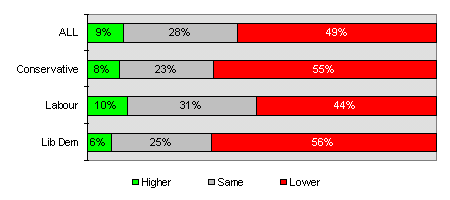
Q2 If educational standards were the same in state schools as in independent schools, do you agree or disagree that there would still be a role for independent schools?
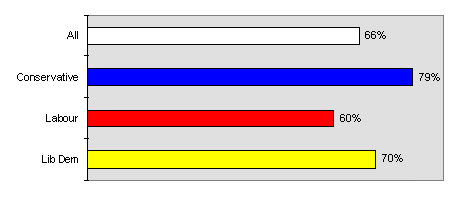
Q3 To what extent would you support or oppose the use of Government funds to enable children from lower income families to attend independent schools?
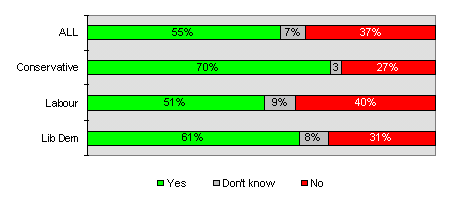
Q4 (Parents only) If you could afford it, would you send your child to an independent school or not?
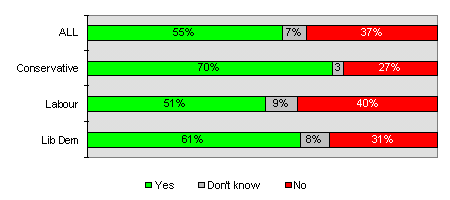
If Yes, why?
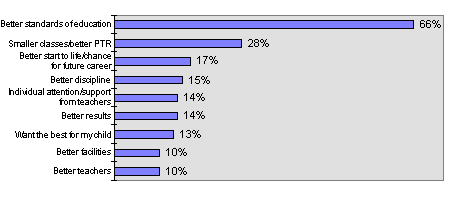
If No, why not?
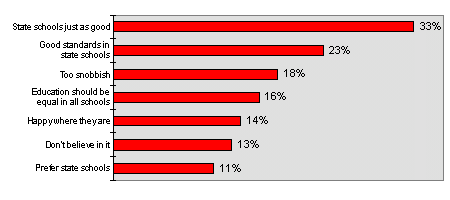
Technical details
The MORI survey was conducted amongst 1,886 adults across 155 constituency sampling points, between 21 and 24 August.



